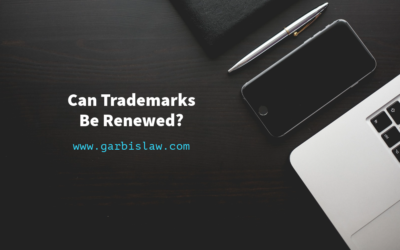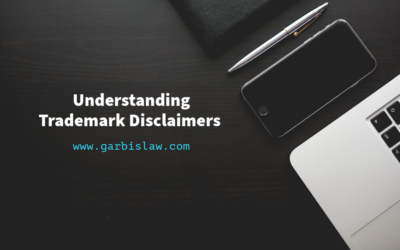First it was removing her music from Spotify. She followed that with submitting numerous trademark applications protecting some lyrical phrases from her new album for a variety of goods. Now, she purchased taylorswift.porn and taylorswift.adult.
Wait…what?
No, Taylor Swift is not getting into the porn business…at least I’m going to go ahead and presume that for purposes of this discussion. What she is doing, however, is being proactive and aggressively protecting her brand. Let’s take a look at what she has done and how it helps her brand.
Removing music from Spotify
Back in the fall of 2014, Taylor Swift made the decision to remove her music from Spotify, citing concerns with the amount of royalties that were actually paid out. For those of you that don’t know, Spotify is a popular music streaming service. Artists are paid through a royalty (depending on the artist). That royalty is split among the publishing company, song writers, and artists. Generally, however, it is not nearly as much as would be received from the profits of actual album sales.
In an interview with Time magazine, Swift reasoned that Spotify devalued hers and all artists’ music. With the recent surge in music streaming services, specifically ones that are free, consumers tend to forget that the artists depend on profits from the sale of their music. With this in mind Swift made the call to drop Spotify and other streaming services, stating that those who wanted to hear her can do so by purchasing her album on iTunes and other outlets. Many questioned why she would do such a thing to her fans, but it turns out that it was probably the smartest thing she could have done.
Her new album was released on October 27, 2014. Not only was her album titled “1989,” but it also took us back to a time when people actually purchased albums. With all of the streaming services available, it was no secret that album sales drastically dropped. Swift, however, somehow managed to beat all odds and make sales relevant again. In fact, “1989” debuted with sales of 1.287 million copies in its first week, which was also the largest sales week of an album since 2002 when Eminem (who in his own right is aggressive at protecting his brand) had just over 1.3 million. To put her first week numbers in perspective, the album was already the second best-selling album of 2014, only behind the soundtrack from the movie Frozen, and eventually surpassed it for the top spot of 2014. Today, her album has surpassed 4.5 million copies, which is quite the feat considering the popularity of music streaming.
By blocking her music from streaming services, Swift was able to turn back the clock on how people listen to music and she successfully forced album sales. Granted, she was already a top artist and she has a bit more “negotiating” power with her fans than an artist seeking to be discovered, but she has successfully shown that significant album sales are still possible, even today. The timing for her could not have been any better as she was just about to change music genres. Whether it was because her fans are extremely loyal, or if the change in style piqued their interests, but the album sold and did so at a record rate.
Trademarks
After the release of her album, Swift made headlines when it came out that she applied for trademarks of certain song lyrics, among other things. Unfortunately, as is often the case with reporting on trademarks, media outlets misinformed the public on what these applications actually meant. Swift received quite a bit of backlash from people assuming she is trying to deny others from using certain words in songs, which can’t be further from the truth. What Swift is trying to do, consistent with what savvy entrepreneurs should be doing, is creating a potential brand and market for future merchandise she might sell. The phrases she is applying for will act as a source identifier for those goods or services. So this does not mean that she has a monopoly on THIS SICK BEAT or CAUSE WE NEVER GO OUT OF STYLE and can sue anybody who uses that phrase.
Swift filed these applications as intent-to-use (ITU) applications. As defined, ITU applications allow the applicant to attempt to reserve a mark for later use. The applicant must renew the application every 6 months in order to keep it active and if in the meantime she begins “using the mark in commerce,” she may convert the applications to “in use.” Although there’s more to it, to keep things simple, you can consider a mark as being used “in commerce” when you start selling the goods or services associated with that mark.
All in all, Swift submitted 57 ITU applications covering goods and services ranging from apparel, cosmetics, jewelry, toys, hair accessories, bags, towels, blankets, lanyards, glassware, entertainment services, and a number of others. She identified goods and services that she might offer down the road, and was proactive in securing the rights to use those phrases for those goods and services.
gTLDs – .porn & .adult
Finally, in an effort to further protect her brand, Swift took advantage of the ICANN “sunrise period” for new generic top-level domains (gTLD), more specifically the .porn and .adult gTLDs. The sunrise period gives trademark owners first right to purchase the respective gTLD for their mark. As the owner of the mark TAYLOR SWIFT, she did not hesitate to take steps to buy taylorswift.porn and taylorswift.adult. By doing so, she is not letting those domains fall into the wrong hands and damage her brand.
There is no question that Taylor Swift has an excellent intellectual property strategy in place centered on the control of her copyrights, trademarks, and likeness. She has been proactive in obtaining protection which is an approach that should be used for any business. The most common mistake entrepreneurs and businesses make is to put securing intellectual property rights on the backburner and only worry about it if needed. Taylor Swift shows the significant advantages of dealing with IP head on and controlling your brand from the get go.





